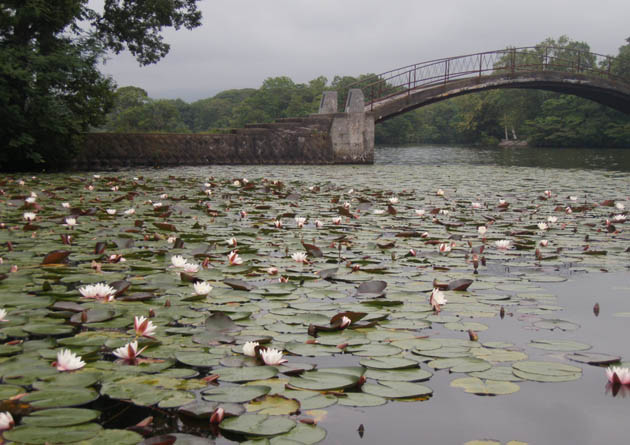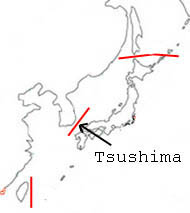
I went to Ônuma Quasi-National Park near Hakodate. There is a beautiful lake. Many foreign tourists visit the park. Most of them are from Asian countries like China, Taiwan and Korea. Economic development of those countries enable people to go abroad, and sightseeing spots in Japan are full of those Asian travelers.
We welcome those travelers, but we cannot forgive them to invade our country. I give you an example. Many Korean travelers visit Tsushima Island, which is near from Korea. Some of them bought real estate in the island. Some members of the Diet asked the opinion of the government. Mr. Asô, the prime minister, answered, “As we, Japanese, may buy land in foreign countries, we cannot forbid Koreans to buy land of Japan.” This is the reason why he is not supported not only by reformists but also by conservatives. After all, Koreans bought big amount of real estate in Tsushima, and began to insist that Tsushima was a territory of Korea from the past. They are always good at a history forgery.

In the volume 15 of Manyôshu, which was published in 783, C.E., there are fifteen songs sung in Tsushima. Thirteen of them were made by Japanese diplomatic delegation toward Silla, a country in Korean penisula, and two of them were sung by a girl called Tamatsuki who was a native of Tsushima:
From the sea by the mountain
where red turned leaves float
your ship came.
I come to the shore
fascinated by its beauty.
momichiba no
chirahu yamahe yu
kogu hune no
nihohi ni medete
idete kinikeri
Through Takeshiki Bay
pushing seaweed aside
you sails away.
Until your ship comes back
how long shall I wait?
takesiki no
tamamo nabikasi
kogidenamu
kimiga mihunewo
itu toka matamu
This is the evidence that people of Tsushima were Japanese form the ancient times.
Another evidence. In 1274, C.E., Mongolia tried to invade Japan. Tsushima was the first place attacked by them. 900 battle ships with 28,000 soldiers came. Sukekuni of Sô Family, the Duke of Tsushima, defended with only 80 warriors. All of them died in the battle. Hearing the report of their honorable death, Lord Tokimune of Hôjô Family, military ruler of Japan, decided to battle with Mongolia, even if he had a rare winning chance. After difficult battles, Japan won the war. Tsushima is, therefore, not only a territory of Japan from the ancient times, but a monument of Japanese honor.

